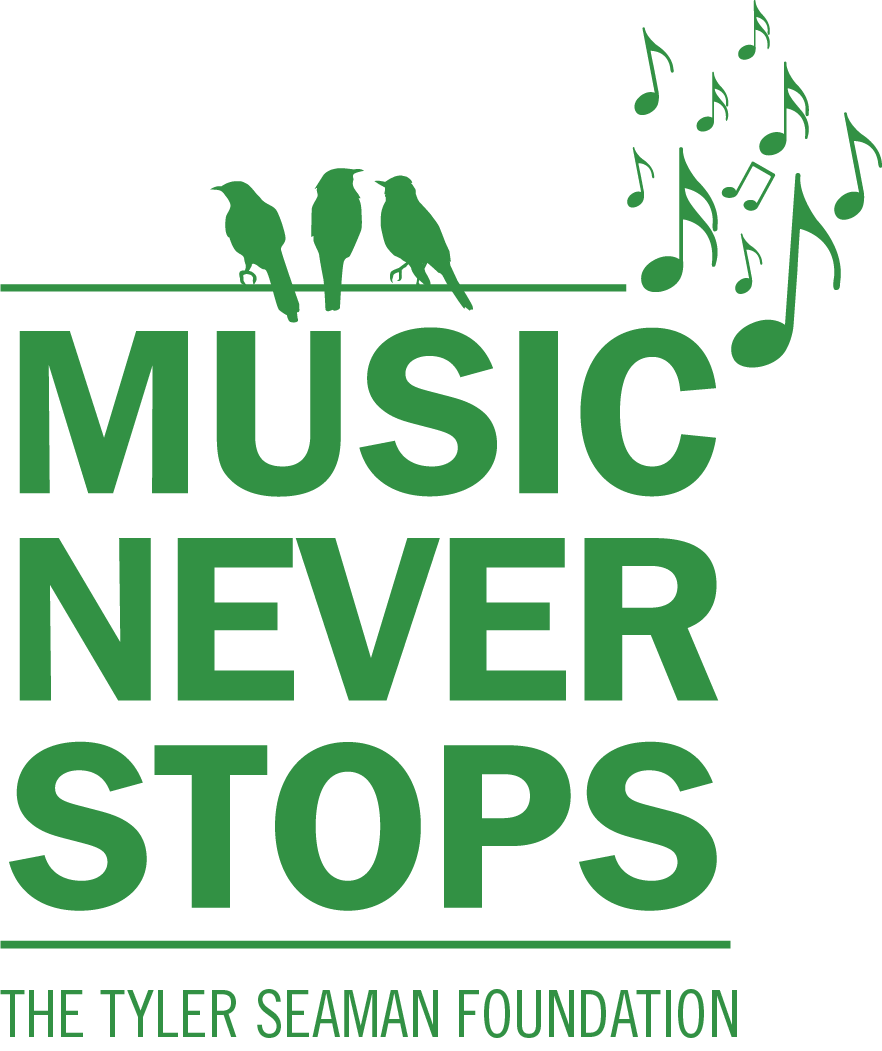About Us
Who is Tyler's Music Room?
Tyler’s Music Room is the first project of Music Never Stops: The Tyler Seaman Foundation. It is a music therapy facility at Mount Sinai Health System in New York City. The project will augment Mount Sinai’s existing music therapy capabilities, giving patients and their families more access to music therapy.
The funding Mount Sinai receives from Music Never Stops: the Tyler Seaman Foundation will allow them to hire two new therapists and help more patients, pursue new research, purchase instruments like Tyler’s red SG bass, buy concert tickets, get recording equipment so patients can record their own music, and set up iTunes and Spotify accounts so they can make mixes like Tyler did. Tyler’s life is a testament to the power of music, and through Tyler’s Room, we want to share it with young people like Tyler for years and years to come.
Why music therapy?
Tyler was a music lover who attended countless concerts and jam sessions, never tired of talking about music and listening to music with family and friends. When he was diagnosed with a clival chordoma at the age of 14, he used the music of Dr. John and the Allman Brothers to stay calm during frightening meetings with doctors and long, sometimes invasive tests, and help him keep his energy up during physical therapy. Derek Trucks and Bob Marley lifted his spirits. The Band soothed and encouraged him during radiation treatments. Tyler became a drummer and found new outlets in pounding the skins, covering favorite songs, and creating new ones with his family. Later in life, when he dealt with the news of a terminal diagnosis, classic jazz helped keep him calm, and his hobby of creating iTunes playlists occupied his time and allowed him to give pieces of himself to friends and family, communicating with them in a new way and creating a new connection that has endured for years.
In addition to its fun and uplifting qualities, research suggests music therapy can have real clinical benefits for people in crisis. Mount Sinai is committed to using these in ways that are appropriate to each patient and to spreading the word to other health care providers. Read more at their website.We feel that these services are especially vital for teenage patients because they have needs that are distinct from those of pediatric and adult patients. The teen years can be tough enough on their own even if you’re not dealing with an illness or a medical problem affecting someone close to you. Even more than for the rest of us, teenagers can define themselves through music, using it to communicate, and express their feelings when words won’t come.
